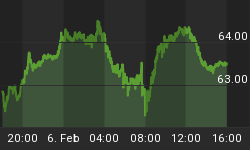It was bound to happen. Even more radical ideas to produce inflation in a deflationary world have surfaced.
The latest absurd ideas come from Olivier Blanchard, former chief economist at the IMF, and Adam Posen, president of the Peterson Institute for International Economics.
Their ideas?
Wage and price controls in reverse, effectively demanding wages and prices rise.
Once-discredited wage and price controls get a fresh look as Japan struggles to stir inflation. This time, the controls would be in reverse.
The Wall Street Journal reports Radical Policy Ideas Resurface Amid Too-Low Inflation.
Four decades ago, governments desperate to tame double-digit inflation turned to the heavy-handed tool of wage and price controls. That once-discredited idea is getting another look, but this time to boost wages and prices, not restrain them.
"Some kind of mechanism, a 'visible hand,' is necessary for wages to rise," Bank of Japan governor Haruhiko Kuroda said in 2014. His plan that a 2% inflation target would serve that role in the place of coordinated wage bargaining hasn't yet panned out.
In a recent article, Olivier Blanchard, former chief economist at the IMF, and Adam Posen, president of the Peterson Institute for International Economics, put forward several proposals for Mr. Abe's government. First, delay a promised cut in corporate tax rates until companies raise wages. Second, increase public-sector pay, which would force private employers to do the same to hold on to workers. Third, raise the minimum wage and wages in government contracts and regulated sectors by at least 5%. And finally, index wages to inflation in those sectors over which the government has jurisdiction.
The IMF economists echo those suggestions and add a few more of their own, such as introducing tax penalties for companies for "not passing on excessive profit growth" or a "comply or explain" mechanism for companies to ensure "they raise wages by at least 2% plus productivity growth."
What's Next?
The Wall Street Journal article concludes "With policy makers desperate for new ways to boost incomes and inflation, more 'break the glass' options such as wage and price controls will be on the table."
Indeed. Let's break the glass. That would add to GDP according to the Keynesian economic thinking.
Instead, I propose that among other things, that forced wage hikes would reduce profits and sink the stock market. Forced price hikes would kill anyone on fixed income.
And what about all the Japanese retirees? What about the clear efforts of central banks to force up the stock market? What about the incentive for corporations to increase the use of robots?
Can't any of these clowns think ahead?
Law of Bad Ideas
I discussed all of the above questions long ago in various posts on the "Law of Bad Ideas".
A number of corollaries clearly apply.
- Corollary Three: Those in positions of political power not only have the worst ideas, they also have the means to see those ideas are implemented.
- Corollary Four: The worse the idea, the more likely it is to be embraced by academia and political opportunists.
- Corollary Five: No politically acceptable idea is so bad it cannot be made worse.
The reason CEOs make out like bandits is explained in Monetarism, Abenomics, QE, and Minimum Wage Proposals: One Bad Idea Leads to Another, and Another.
In the above article I added Law of Bad Ideas Corollary Six: Bad ideas lead to more bad ideas to fix problems caused by previous bad ideas.
When I first penned the "Law of Bad Ideas" I was shocked to discover nobody had used that phrase.















